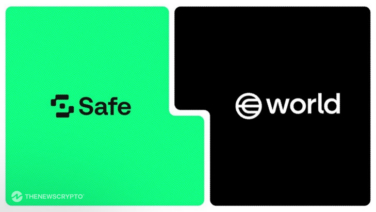Data Annotation – The Core of AI Training
In the field of artificial intelligence, data is the foundational pillar driving the development of AI models, and data annotation is the key step that enables these models to “understand” and learn from data. Data annotation not only equips AI systems with the ability to recognize patterns, classify information, and make predictions, but is also crucial in practical applications. For example, in speech recognition, only with accurately annotated speech data can AI understand and accurately convert speech into text. In computer vision, only with annotated image data can AI identify objects, scenes, and other visual elements. In natural language processing applications, annotated text data helps AI recognize grammatical structures, sentiment tendencies, and language relationships. These applications are widely used in industries such as autonomous driving, medical diagnostics, and financial risk assessment, and the demand for data annotation is immense.
However, the global data annotation industry is facing significant challenges. Despite the widespread use of traditional manual annotation methods, they are costly, time-consuming, and heavily reliant on human labor, making them inadequate to meet the rapidly growing demand for AI. According to statistics, the training process for artificial intelligence typically requires annotating millions, or even billions, of data points. The cost and time involved in manually annotating each data point are substantial, and errors are prone to occur. To address this challenge, automated intelligent annotation has become an indispensable part of the industry, and its demand is rapidly increasing. According to industry reports, it is expected that by 2027, the global automated data annotation market will exceed $15 billion, with a growth rate of over 20%. This trend indicates that automated annotation is becoming the key to improving AI training efficiency and reducing costs.
At this point, Alaya AI emerges with its unique data annotation method. Alaya AI not only addresses the issues in traditional annotation approaches but also effectively solves the challenges encountered in the data annotation process through its innovative solutions. With three core features, Alaya AI is revolutionizing the AI training process:
- Distributed Data Collection Platform
- Open Data Platform (ODP)
- AI Automation Toolset
By integrating these innovative elements, Alaya AI provides a more efficient, cost-effective, and higher-quality solution for data annotation, opening a new chapter in global AI model training. In the future, as AI applications continue to deepen, the importance of data annotation will become increasingly prominent, and Alaya AI’s automated annotation methods will play an ever more critical role in the AI field.
1. Alaya AI’s Solutions
1.1 Distributed Data Annotation Platform
Alaya AI’s distributed data annotation platform is designed to tackle the efficiency and cost challenges of traditional data annotation methods. By leveraging a global network of contributors, this platform provides a scalable solution capable of handling vast amounts of data, from AI model training datasets to specialized datasets in industries such as healthcare, autonomous driving, and finance.
This approach ensures data diversity, which is crucial for building robust AI models. The platform gathers data from thousands of contributors worldwide, generating more accurate and representative datasets while reducing biases. For example, in the autonomous driving sector, diverse driving scenarios from different geographic locations can be easily collected, ensuring that AI models are trained under a wide range of real-world conditions.
1.2 Open Data Platform (ODP)
Alaya AI’s Open Data Platform (ODP) represents a breakthrough in accessing and exchanging AI training data. ODP supports Web3-native data transactions, enabling developers to create custom data pools and request data from a decentralized network of contributors. Unlike traditional data marketplaces that rely on centralized intermediaries, Alaya AI’s open platform offers a transparent and decentralized model, allowing data buyers and sellers to define exchange terms and transact using Web3 tokens.
This solution democratizes data access, particularly benefiting small to medium-sized AI developers who face high costs and limited access to high-quality data. By leveraging blockchain for transaction validation, ODP ensures data ownership and security, reducing the risk of data breaches or theft. The global blockchain market in AI applications is projected to grow at a CAGR of 42.5% from 2021 to 2026, and Alaya AI’s integration of Web3 technology into data annotation positions it to capitalize on this rapidly expanding market.
1.3 AI Automation Toolkit
The AI automation toolkit is at the core of Alaya AI’s platform, utilizing AI-driven automation to perform data annotation tasks traditionally handled by human annotators. This toolkit employs reinforcement learning with human feedback (RLHF) and evolutionary algorithms to continuously improve annotation accuracy and efficiency. By automating repetitive tasks and applying intelligent algorithms, Alaya AI significantly reduces model training time and costs while ensuring high-quality, consistent annotation results.
For instance, in medical imaging, accuracy is paramount. Alaya AI’s toolkit can automatically annotate medical scans, identifying key features such as tumors or lesions. This not only accelerates model training but also enhances diagnostic accuracy by reducing human errors. A 2019 study in the International Journal of Medical Informatics found that AI models trained on accurately labeled data can improve efficiency by 5-10 times, highlighting the impact of high-quality annotation on AI model performance.
2. Advantages of Alaya AI
2.1 Global Data Community
One of Alaya AI’s most significant advantages is its ability to leverage a global data community. This decentralized model allows data to be collected from a wide range of contributors, ensuring that datasets are not only diverse but also more reflective of real-world conditions. By eliminating dependence on a few centralized data providers, Alaya AI expands the possibilities for data richness and diversity.
2.2 Custom Web3 Data Pools
Alaya AI’s custom Web3 data pools enable frictionless data transactions through a decentralized, tokenized ecosystem. Developers can create personalized data pools and specify the types of data they need (e.g., medical imaging, financial documents, autonomous driving sensor data). Contributors receive incentives in Web3 tokens, ensuring fair compensation for their data contributions.
2.3 Auto-Labeling Toolsets
Alaya AI’s automation toolkit dramatically reduces the time and cost associated with manual data annotation. By leveraging AI-driven automation, the platform can efficiently process large-scale datasets, delivering high-quality labeled data at a fraction of traditional costs.
2.4 Specialized Data Domains
Beyond general AI applications, Alaya AI excels in catering to specialized data needs. In the financial sector, for example, it can provide annotated credit data or loan risk profiles, enabling companies to develop predictive models for fraud detection and credit scoring. Similarly, in healthcare, the platform supports clinical trial data annotation, helping AI models identify patient outcomes and disease patterns with high accuracy.
2.5 Academic Collaborations with Berkeley and Global Institutions
Alaya AI collaborates with top academic institutions, including the University of California, Berkeley, to enhance its AI capabilities. Berkeley’s AI research lab (BAIR) is one of the world’s leading centers for AI research, particularly in deep learning, reinforcement learning, and computer vision. This partnership allows Alaya AI to stay at the forefront of AI advancements and rapidly integrate cutting-edge technologies into its platform.
3. Alaya AI Annual Revenue Expected to Surpass $6 Million, with Monthly Orders Exceeding $500K
Alaya AI is poised for significant growth, with annual revenue projections expected to exceed $6 million. As of the latest figures, the platform has already surpassed $500,000 in monthly orders, demonstrating robust demand for its cutting-edge automated data labeling solutions. This rapid growth is driven by the accelerating need for high-quality labeled data to train AI models across multiple industries, including healthcare, autonomous driving, finance, and retail.
The increased adoption of AI technologies is a key factor behind this growth. According to a 2023 market report from Grand View Research, the global AI market is expected to grow from $136 billion in 2022 to over $1.8 trillion by 2030, fueled by the need for better data to train AI models. Alaya AI’s unique value proposition—automating data labeling and ensuring high data quality at scale—places it in a prime position to capture a significant portion of this market. In addition to reducing costs, its solution also accelerates AI model development, providing companies with faster time-to-market and a competitive edge.
Alaya AI’s ability to scale rapidly while maintaining high service quality is a clear indicator of its potential for further expansion. With its current rate of customer acquisition and revenue growth, it is on track to become a dominant player in the AI data ecosystem, serving businesses that require cost-effective, scalable solutions for training and optimizing AI models.
4. Alaya AI’s market prospects
As AI technology continues to progress, data annotation plays an increasingly important role in global AI development. In the coming years, the data annotation market is expected to experience explosive growth, and Alaya AI, as a key player in this field, is in a market full of opportunities. Below are several key factors supporting this view:
4.1 Growing Demand for AI Applications
As AI technology is widely applied across various industries, especially in sectors such as healthcare, autonomous driving, finance, and intelligent manufacturing, the accuracy and reliability of AI models have become crucial. High-quality training data, especially data that has been accurately annotated, is the key to ensuring the success of AI models. According to an IDC report, the global AI market is expected to reach $500 billion by 2025, and this trend presents a significant market opportunity for Alaya AI.
4.2 The Integration of Blockchain and Data Privacy
The application of blockchain technology, particularly its advantages in data privacy and transparency, will become a key development direction for the data annotation market. Alaya AI, through its Open Data Platform (ODP), has achieved decentralized data transactions, which not only increases the security of data exchanges but also improves the verifiability of data ownership. As concerns over data privacy and security continue to rise, Alaya AI’s decentralized platform will attract more data contributors and enterprise users.
4.3 Advancements in Automation Technology
The continuous advancements in AI automation technology will further drive the development of the data annotation field. Traditional manual annotation methods are inefficient and costly, whereas AI-driven automated annotation toolsets can significantly improve the efficiency and quality of annotation. Alaya AI’s technological innovations in this area enable it to provide high-quality annotated data while reducing costs, saving businesses substantial time and resources. This advantage will allow Alaya AI to capture a larger market share in the fast-growing AI industry.
4.4 Increased Global Data Demand
As global data volume grows exponentially, particularly data from IoT devices, social media, and other digital platforms, the demand for annotated data is also steadily increasing. According to Gartner’s forecast, by 2025, the world will generate about 175 ZB (zettabytes) of data, and the effective utilization of this data will depend on high-quality annotations. Alaya AI’s platform can meet this demand, particularly through its distributed data collection system and global data community, providing customized datasets for different sectors.
5. Future Outlook: Reshaping the Data Labeling Industry
5.1 Existing Case: Autonomous Driving, Training AI Autonomous Driving Systems
Autonomous driving technology is a data-intensive industry that requires a large amount of annotated sensor data. Alaya AI can collaborate with leading autonomous driving companies to leverage its distributed data platform to collect driving data from various regions and annotate the sensor data using its automated tools. This project provided millions of annotated data points for training the autonomous driving system, significantly improving the performance of the system in various complex environments. Through this collaboration, Alaya AI helped the company complete the dataset construction in just a few months, accelerating the development of autonomous driving technology.
5.2 Existing Case: Large Model Validation, Ensuring the Efficiency and Accuracy of AI Models
As AI models, especially large models, continue to evolve and be applied, ensuring their efficiency and accuracy across different scenarios has become a key industry focus. Large models, particularly in critical fields such as autonomous driving and healthcare, rely on massive and precise training data. However, even the most advanced automated annotation tools may have annotation errors or biases, which can impact the training results and application effectiveness of AI models. To address this challenge, Alaya AI offers a large model validation mechanism, collaborating with industry experts and employing multi-layered data validation methods to ensure the accuracy of each batch of annotated data.
5.3 Development Case: Healthcare Industry, AI-Assisted Diagnosis
In the healthcare industry, the accuracy of AI models directly impacts patient safety. Alaya AI can provide the healthcare industry with large amounts of annotated medical imaging data, helping AI models recognize key features such as tumors and lesions. If a healthcare institution collaborates with Alaya AI and uses its automated annotation toolset, they could successfully develop an AI-assisted diagnostic system. This system could significantly improve accuracy in early-stage lung cancer diagnosis. By reducing the time and cost of manual annotation, diagnostic error rates are also reduced.
6. Alaya AI’s Future Plans and Development
6.1 Expanding Data Annotation Fields
Alaya AI plans to expand the application of its data annotation services, especially in new industries and technological fields. In addition to its current focus on sectors such as healthcare, finance, and autonomous driving, Alaya AI intends to enter new market fields like retail, e-commerce, and agriculture. Through customized data annotation services, Alaya AI will further meet the diverse needs of different sectors and increase its market share in the global data annotation market.
6.2 Enhancing AI Automation Toolset
Alaya AI will continue to optimize its AI automated annotation toolset, particularly by strengthening reinforcement learning with human feedback (RLHF) technology to further improve annotation accuracy and efficiency. In the future, Alaya AI also plans to integrate more natural language processing and computer vision technologies into its automation tools to help businesses tackle more complex annotation tasks.
6.3 Global Market Expansion
Currently, Alaya AI has established data annotation platforms in multiple countries and regions, attracting a large number of data contributors globally. In the future, Alaya AI plans to further expand its market coverage in Asia, Europe, and North America, especially by forming partnerships with local AI developers and businesses to promote its decentralized data annotation platform.
At the same time, Alaya AI is actively focusing on the rapidly growing African and Latin American markets, which are quickly becoming hotspots for global AI applications and data annotation. Countries in Africa and Latin America are showing significant growth in demand for AI and big data technologies, particularly in sectors like agriculture, finance, healthcare, and transportation, where AI technology is rapidly penetrating and transforming traditional industries. There are huge business opportunities, especially in data services and AI model applications.
6.4 Continuous Innovation and Technological R&D
To maintain its technological leadership, Alaya AI will continue to invest in research and development, continually optimizing the performance of its platform and exploring new technological innovations, such as the combination of quantum computing and 5G technology, which could offer new breakthroughs for data annotation. In the future, Alaya AI will make innovation the driving force for continuous growth, ensuring it maintains a competitive edge in the data annotation field.
Conclusion
Alaya AI is transforming the AI model training ecosystem with its innovative distributed data annotation platform, open data market (ODP), and AI-driven automation toolset. By addressing the inefficiency and high cost of traditional data annotation, Alaya AI offers more efficient and precise solutions for AI applications across industries. With its global data community, customized data pools, and highly automated toolset, Alaya AI is at the forefront of the upcoming growth in the data annotation market, gradually becoming a key driving force in the global AI field.
Disclaimer: TheNewsCrypto does not endorse any content on this page. The content depicted in this Press Release does not represent any investment advice. TheNewsCrypto recommends our readers to make decisions based on their own research. TheNewsCrypto is not accountable for any damage or loss related to content, products, or services stated in this Press Release.








